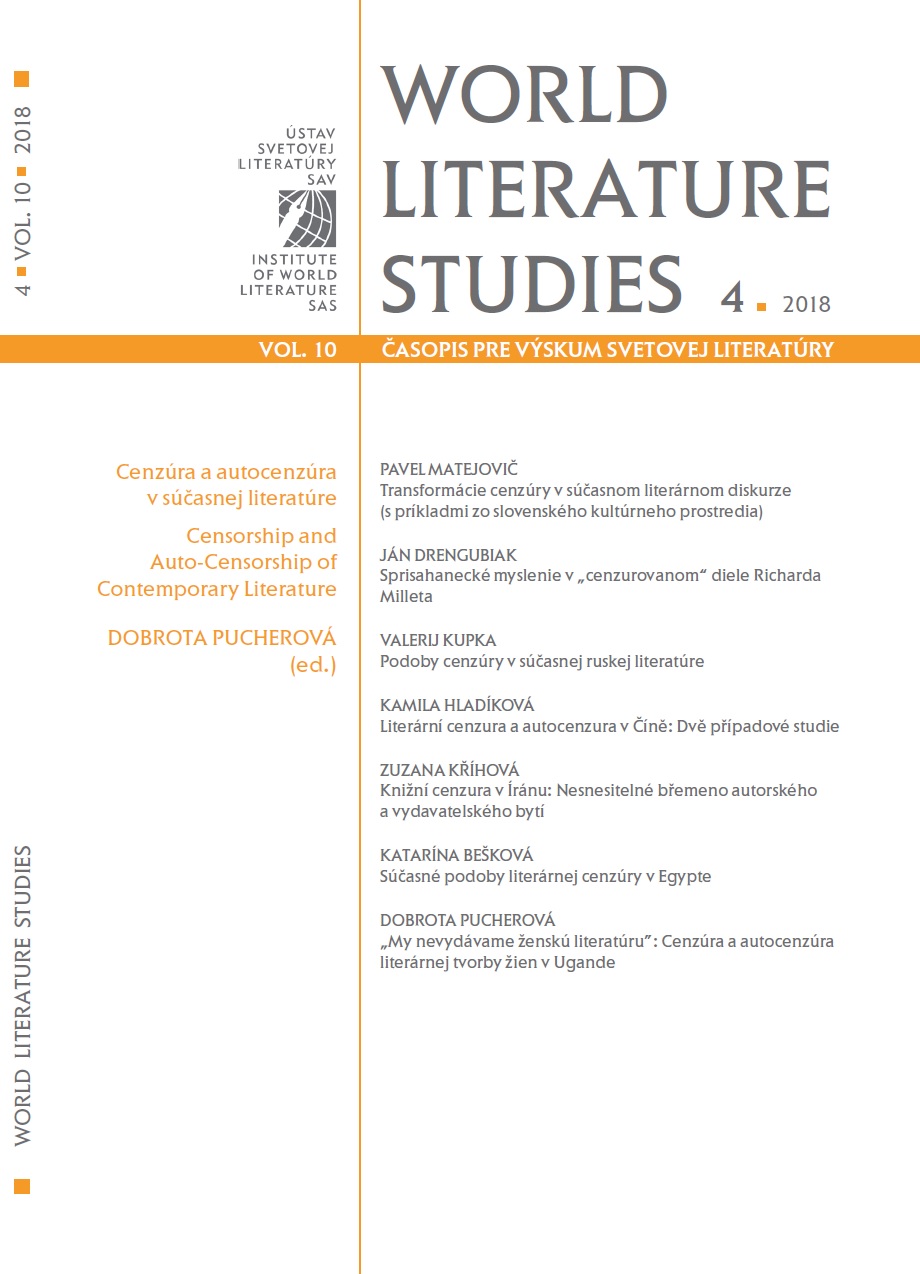Literární cenzura a autocenzura v Číně
Literary censorship and self-censorship in China
Two case studies
Author(s): Kamila HladíkováSubject(s): Language and Literature Studies
Published by: SAV - Slovenská akadémia vied - Ústav svetovej literatúry
Keywords: Censorship; Self-censorship; Chinese literature; Ideology; Propaganda; Minority literature; Tibet
Summary/Abstract: Starting with Mao Zedong’s “Talks at the Yan’an Forum” delivered in May 1942, literaturein China was seen as the key tool of propaganda. Censorship has been a natural part of theChinese literary system established after the founding of the PRC. The centralized, state-controlledliterary establishment was gradually abolished during the post-Mao era, but the basicprinciples in the official Party discourse remain. Two case studies focused on one of the mostsensitive topics, minority nationalities, provide a deeper insight into the ideological backgroundsand aims of Chinese censorship, which can be summed up by notions of social harmony(hexie 和谐) and stability (weiwen 维稳).
Journal: World Literature Studies
- Issue Year: 10/2018
- Issue No: 4
- Page Range: 58-71
- Page Count: 14
- Language: Czech

